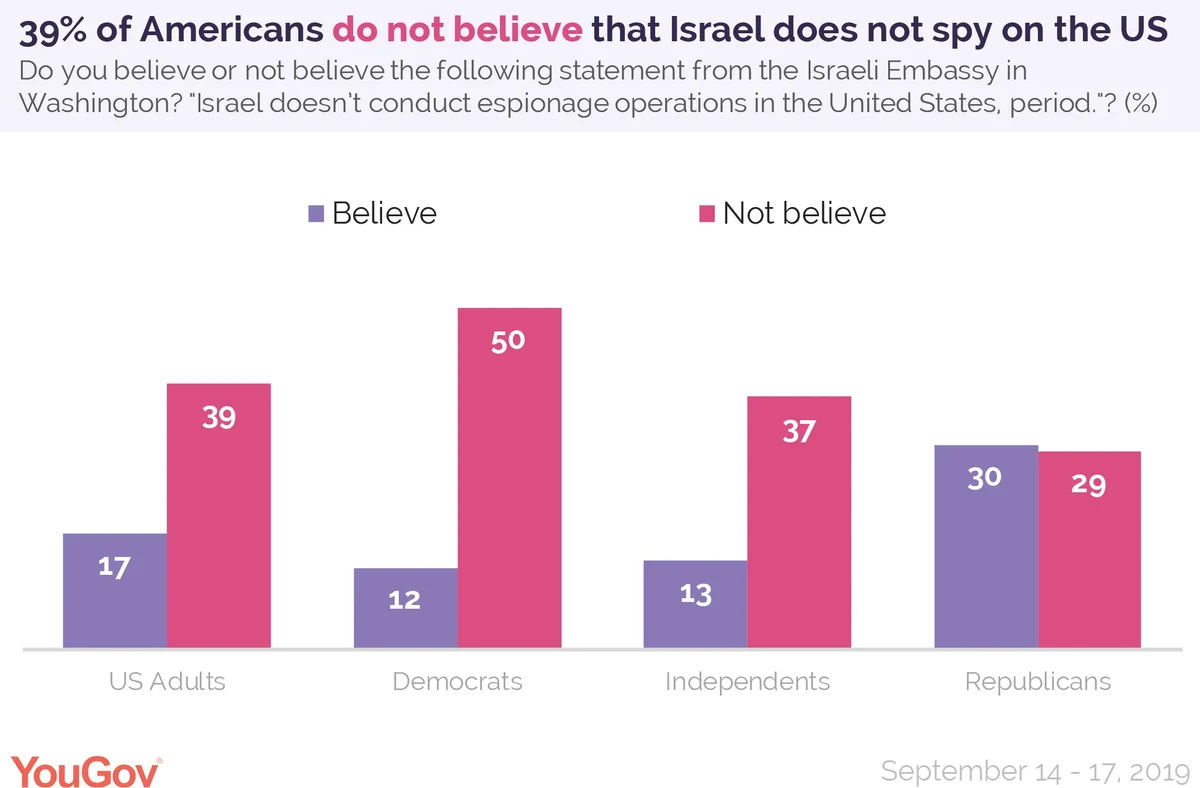This week Israeli voters gave Prime Minister Benjamin Netanyahu a divided result – and not the majority he hoped for. As he – and his opponents – now struggle to find the votes to form a government, the latest Economist/YouGov Poll finds Americans also divided when they evaluate the Israeli leader. As many have an unfavorable as a favorable view of Netanyahu, and – if they had a vote – would divide on his candidacy.
About half the public aren’t sure what they would have done in the Israeli election (over last weekend half the public claimed it had heard nothing about the election), but those with an opinion divide evenly. Partisans are very different from each other. Republicans favor Netanyahu; Democrats don’t.
There are some things about which partisans agree: 63 percent (76 percent of Republicans and 51 percent of Democrats) believe Netanyahu is a strong leader. Even 46 percent of those who don’t like him say that. More call him a strong leader than say that about President Donald Trump, who has formed a strong bond with the Israeli leader.
Despite the divide over Netanyahu, Americans like Israel. Almost two thirds, or 62 percent, call it a friendly country or an ally, just 18 percent believe it is unfriendly or an enemy. But Republicans feel closer to the country. Nearly six in 10 Republicans say it is an ally, something only a quarter of Democrats believe. A third of Democrats agree Israel is friendly to the United States.
However, Americans do not believe Israel’s response to the discovery of cellphone surveillance near the White House, its statement that “Israel doesn’t conduct espionage operations in the United States, period.” Republicans are as likely to believe as disbelieve that claim, Democrats, by four to one, find the statement not believable.

As for the president’s handling of relations with Israel, Americans are divided, perhaps not a surprise given the link between Netanyahu and President Trump. There are other problematic areas of US foreign policy on which Americans express mixed or even negative views:
- Secretary of State Mike Pompeo gets a split assessment; just about the same percentages disapprove as approve of his handling of the job overall. Former National Security Advisor John Bolton’s departure, which may have been a resignation, and may have been a firing, left Americans with an overall negative opinion of him (22 percent favorable, 39 percent unfavorable). Even Republicans are as likely to be negative as positive towards Bolton. Republicans think better of his tenure at the White House: by 37 percent to 28 percent, they approve.
- The public narrowly favors direct negotiations with the Taliban, but it finds the proposed (and then canceled) meetings at Camp David earlier this month inappropriate, scheduled near to the anniversary of the September 11, 2001 attacks.
The President’s approval rating on foreign policy, in general, is negative: 41 percent approve, the same percentage as approve of his handling of his overall job and 46 percent disapprove.
See the full toplines and tables results from this week's Economist/YouGov poll.
Related: Elizabeth Warren seen as just as likely as Joe Biden to beat Donald Trump
Image: Getty










